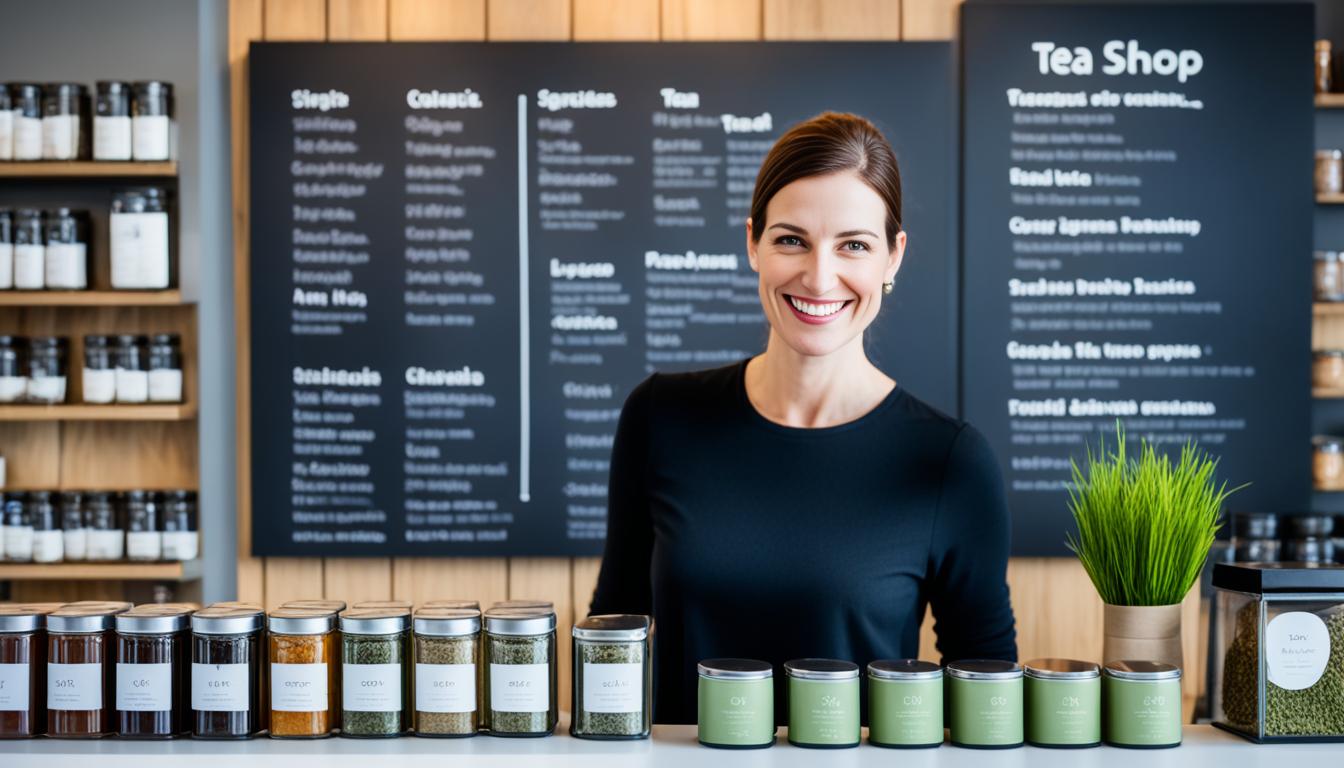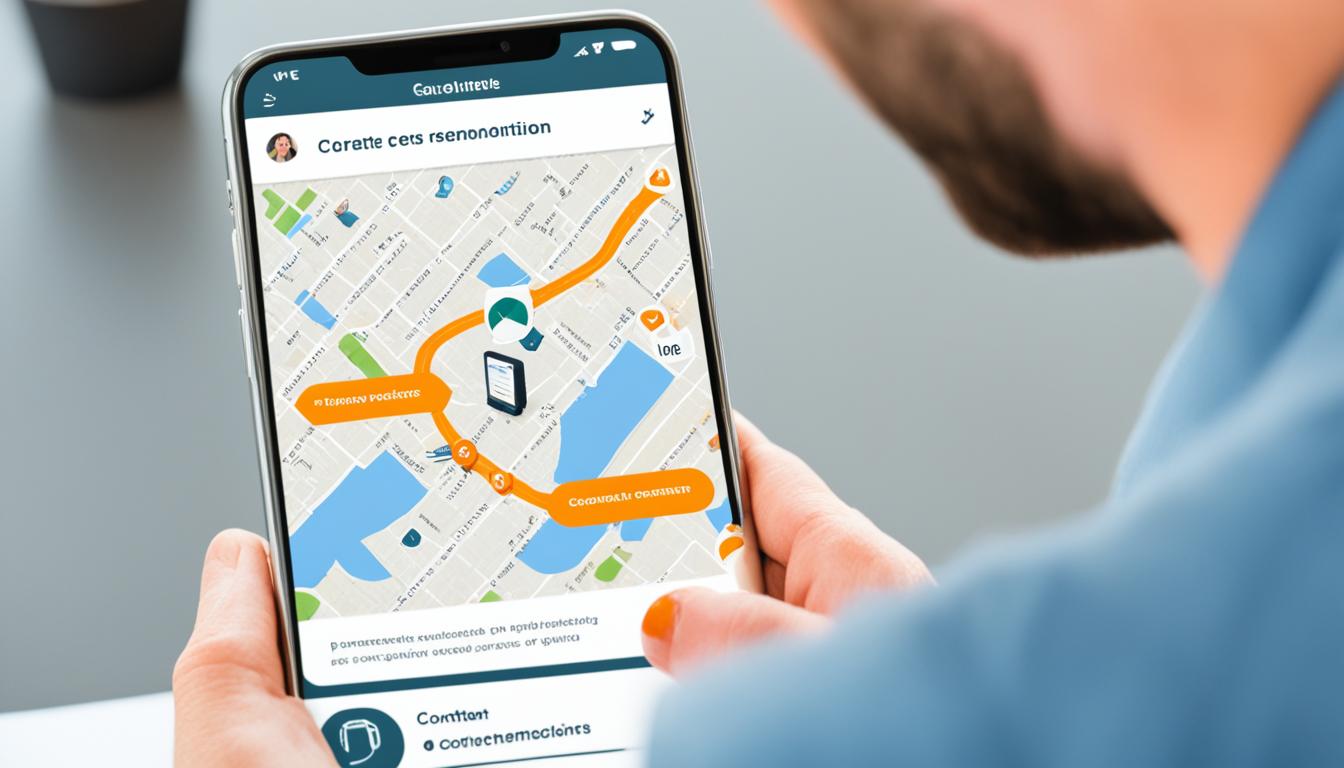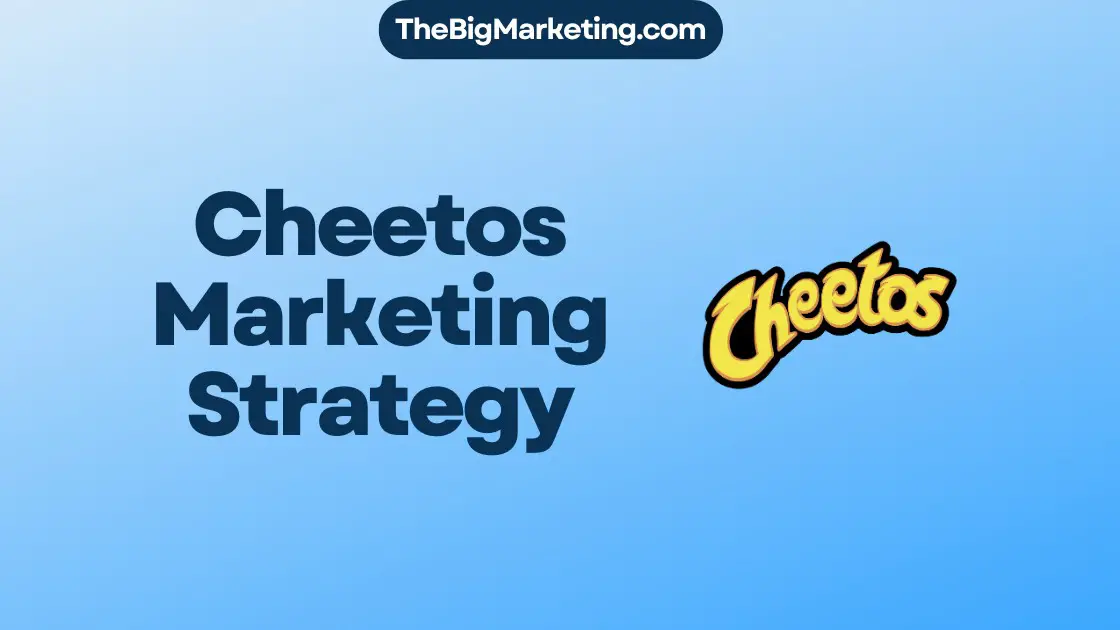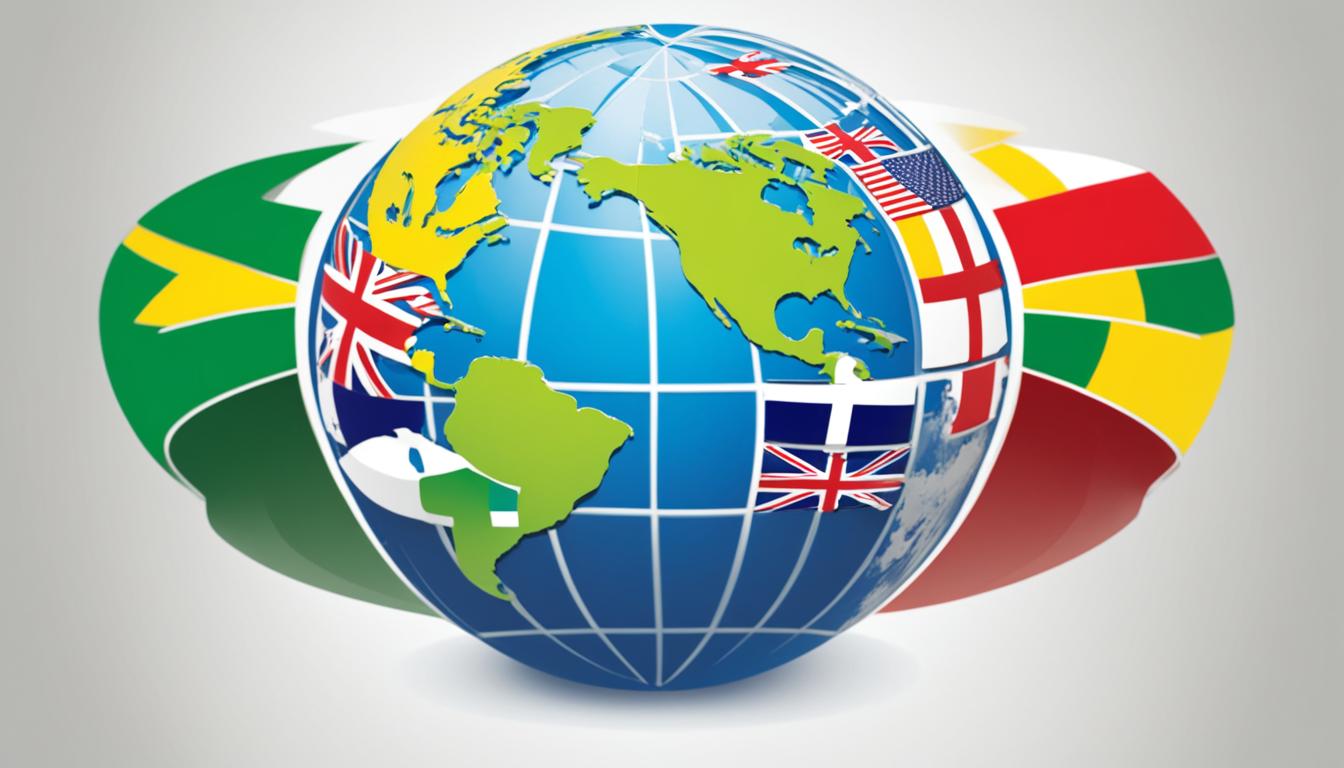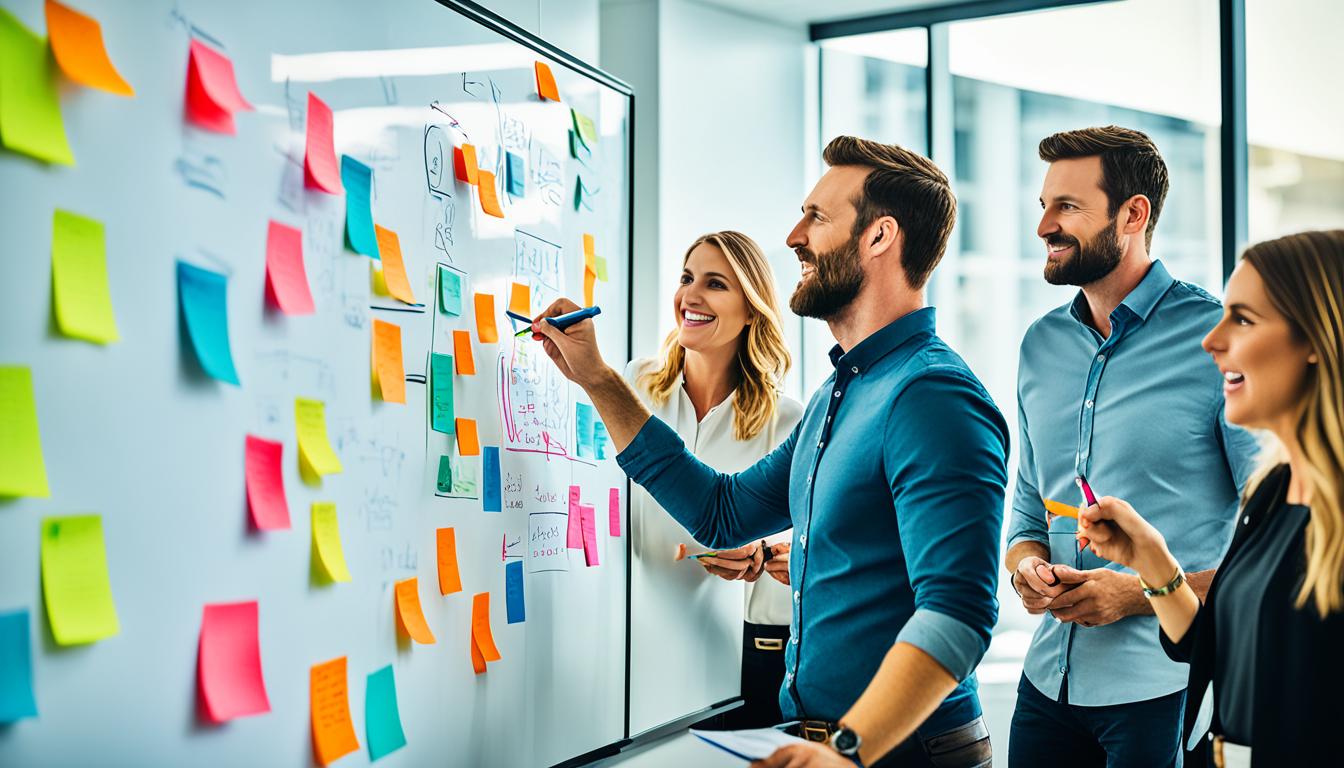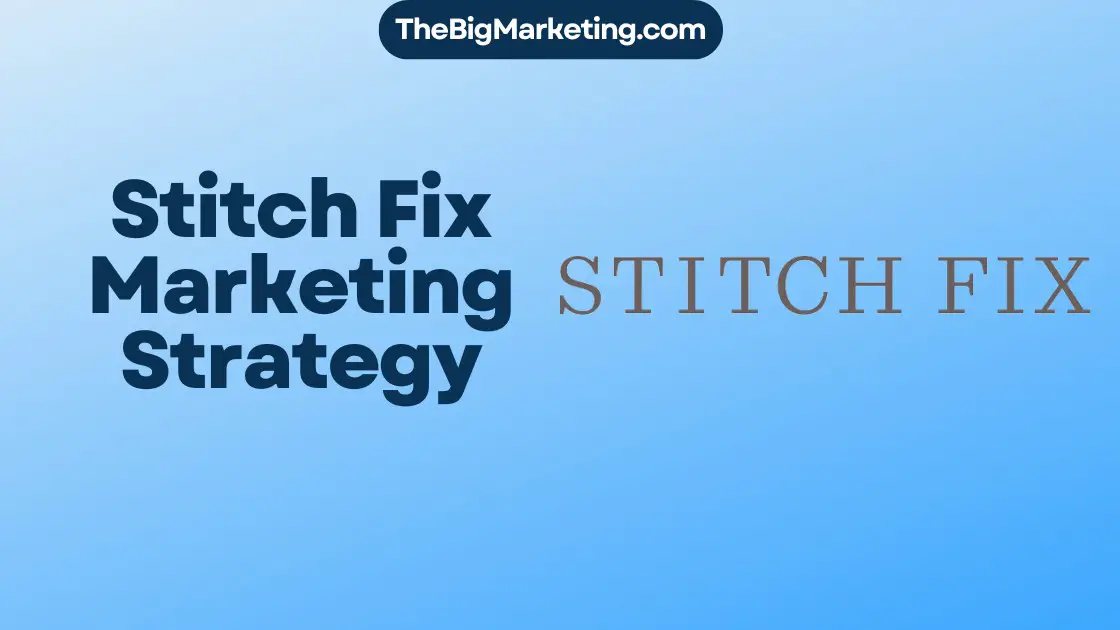L’Oréal, the world’s leading beauty company, is known for its innovative branding strategies that have consistently set industry trends. In this case study, we will explore L’Oréal’s innovative approach to branding and how it has positioned itself as a global leader in the beauty industry.
L’Oréal Brandstorm Competition
A key component of L’Oréal’s branding strategy is its signature innovation competition, L’Oréal Brandstorm. Designed for young people under 30, this competition serves as a platform to nurture and showcase fresh talent while fostering innovation and creativity. Thousands of Brandstorm alumni have gone on to secure jobs at L’Oréal, contributing to the company’s success.
What sets L’Oréal Brandstorm apart is its focus on tech-driven solutions that enhance consumer experience, expand reach, and personalize interactions. These solutions are developed with a strong emphasis on ethics, inclusivity, and sustainability, aligning with L’Oréal’s commitment to responsible business practices.
L’Oréal Brandstorm Winners
The winning teams of L’Oréal Brandstorm are rewarded with an incredible opportunity to transform their innovative ideas into real projects through an intra-entrepreneurship mission in Paris. This immersive experience allows the winners to work closely with L’Oréal’s experts and turn their concepts into tangible initiatives that shape the future of beauty.
By nurturing young talent and giving them a platform to bring their ideas to life, L’Oréal continues to stay at the forefront of beauty innovation and maintain its position as a global leader in the industry.
Key Takeaways
- L’Oréal’s Brandstorm competition provides a platform for young innovators to showcase their talent and contribute to the company’s success.
- The competition focuses on tech-driven solutions that prioritize consumer experience, reach, and personalization.
- Winners of L’Oréal Brandstorm embark on an intra-entrepreneurship mission in Paris to transform their winning ideas into real projects.
- L’Oréal’s commitment to ethics, inclusivity, and sustainability is evident in its branding strategy.
- The company values nurturing young talent to foster innovation and maintain its position as a global leader.
Stay tuned as we dive deeper into L’Oréal’s augmented marketing strategy, the responsible use of generative AI, and its expansion efforts in the global market.
L’Oréal Brandstorm Competition
L’Oréal Brandstorm is a prestigious innovation competition that brings together teams of university students from around the world. Every year, hundreds of teams participate in this exciting event, which offers a unique platform for young talents to showcase their creativity and entrepreneurial skills.
During the competition, students are presented with real-world challenges related to the fast-moving consumer goods industry. They work on solving these challenges by defining pain points, sourcing the right consumers, and designing persuasive presentations.
Participants also have the opportunity to interact with industry experts and receive valuable guidance from their coaches. These one-on-one conversations cover various aspects of the projects, including project status, presentation suggestions, business strategies, and slide preparation.
Additionally, the L’Oréal Brandstorm competition allows participants to build relationships with L’Oréal employees, including brand managers and hiring managers, through programs like the MMS: DKU (Marketing Meets Sales: Dong King University).
One notable edition of the competition focused on the skincare brand La Roche-Posay, challenging students to find new ways to engage with health-conscious customers. A team named “Lady Mad,” comprised of three students, sought to address the inconvenience of finding a scientific and personalized solution for acne skincare.
To tackle this challenge, the team developed a personalized AI tool that enables consumers to diagnose their skin problems and receive product recommendations. This innovative solution showcases the level of creativity and problem-solving skills that participants bring to the Brandstorm competition.
Participating in L’Oréal Brandstorm offers young talents a wealth of unique experiences. They have the opportunity to listen to customers’ voices, hear their stories related to skincare problems, and get inspired by their motivations and energy.
While winning the competition is undoubtedly a great achievement, Brandstorm alumni have secured job opportunities at L’Oréal even if they did not emerge as winners. Numerous success stories highlight the valuable experience gained during the competition, with all participants emphasizing the learning and growth opportunities it provides.
With over 60 countries participating and 36 international brands involved, L’Oréal Brandstorm has become a global platform for youth innovation. In a specific year, a staggering 47,800 students participated in the competition, marking the highest recorded participation rate.
One remarkable success story from the Brandstorm competition is Samantha’s. As a Bachelor of Commerce student, Samantha led her team, named ‘Garnier Purity Pods’, to the 14th position in the world during the International Brandstorm Finals. Their inventive solution, ‘Purity Pods’ – single-use seaweed capsules – aimed to build a plastic-less future for the beauty industry.
Samantha’s exceptional performance in the competition led to a sought-after internship with L’Oréal, demonstrating the career opportunities that await talented participants in the Brandstorm competition.
Participating in the L’Oréal Brandstorm competition not only offers a chance to showcase innovation and entrepreneurial skills but also opens doors to a world of career possibilities in the beauty industry.
L’Oréal Brandstorm Winners
The winners of the prestigious L’Oréal Brandstorm competition are celebrated for their groundbreaking ideas and innovative concepts that push the boundaries of the beauty industry. In 2023, the top prize was awarded to France’s ‘Caring 4 Beauty’ team for their remarkable project, URMODEL.
Developed under the theme ‘Crack The New Codes of Beauty,’ URMODEL presents a hyper-personalized shopping experience on L’Oréal’s e-commerce websites. This groundbreaking concept allows consumers to embrace a fully augmented beauty experience by seeing themselves as the model. Through cutting-edge technology, URMODEL brings forth a new era of customized beauty solutions.
The Journey of the Winners
The ‘Caring 4 Beauty’ team from France emerged victorious among the thousands of talented participants from across the globe. Their URMODEL project was hailed as the most innovative, tech-driven, sustainable, inclusive, and feasible concept among all entries in the Brandstorm 2023 competition.
Winning L’Oréal Brandstorm is a significant achievement. It provides the winners with a valuable opportunity to transform their ideas into reality through an intra-entrepreneurship mission in Paris. These budding entrepreneurs are invited to work closely with L’Oréal’s headquarters, refining their concepts and bringing them to life under the guidance of industry experts.
Global Competition and Collaboration
The Brandstorm 2023 competition witnessed fierce competition among finalists representing nine different regions. Teams from Brazil, Chile, Mainland China, India, Kenya, Malaysia, the Middle East, Spain & Portugal, and Taiwan showcased their incredible talent and creativity, contributing to the diverse landscape of ideas in the competition.
The global reach of L’Oréal Brandstorm is astounding. Since its inception in 1992, it has attracted over 700,000 participants from around the world, strengthening its position as a premier platform for young innovators in the beauty industry.
Furthermore, participants with STEM backgrounds played a significant role in Brandstorm 2023, with 30% of the contestants hailing from science, technology, engineering, and mathematics fields. This emphasis on STEM highlights L’Oréal’s commitment to nurturing talent and promoting interdisciplinary collaboration.
Empowering the Future of Beauty
L’Oréal’s Brandstorm competition is a testament to the company’s dedication to empowering young minds and propelling innovation in the beauty industry. For over three decades, Brandstorm has been integrated into the curricula of nearly 100 universities worldwide, providing students with invaluable real-world experience and fostering entrepreneurial spirit.
The competition not only propels the winners on a transformative journey but also offers extraordinary opportunities for the participating teams. The winning teams, including France’s ‘Caring 4 Beauty,’ have the chance to embark on a three-month intrapreneurship at L’Oréal Paris headquarters. This invaluable experience enables them to gain firsthand insights into the industry and further shape their entrepreneurial endeavors.
L’Oréal Brandstorm winners, such as the visionary team behind URMODEL, showcase the immense talent and potential within the global youth community. Their groundbreaking ideas and passion for innovation continue to shape the future of the beauty industry, driving the industry forward with hyper-personalized experiences and transformative technologies.
L’Oréal’s Augmented Marketing Strategy
L’Oréal, as one of the leading companies in the global beauty market, understands the importance of leveraging technology to enhance their marketing efforts. With their commitment to innovation, they have embraced augmented marketing, which combines the power of data-driven marketing and beauty tech to create personalized and engaging experiences for their consumers.
At the core of L’Oréal’s augmented marketing strategy is GenAI, a generative AI technology that enables the company to augment the creative process. By harnessing the capabilities of GenAI, L’Oréal can create customized beauty solutions that cater to the unique needs and preferences of individuals.
With a strong global presence in over 150 countries, L’Oréal has access to a vast amount of consumer data. They have invested in data-driven marketing to analyze this data and gain valuable insights into consumer behavior, preferences, and trends. By leveraging these insights, L’Oréal can develop targeted marketing campaigns that resonate with their diverse consumer base.
Beauty tech plays a crucial role in L’Oréal’s augmented marketing strategy. The company has assembled a team of over 4,000 researchers, 5,500 tech and digital professionals, and 21 research centers worldwide. These experts work tirelessly to develop cutting-edge beauty technologies that enhance the customer experience.
Personalized Beauty Experiences
L’Oréal’s focus on personalized beauty experiences sets them apart from their competitors. Through their multi-channel marketing strategy, which includes websites, social media platforms like Instagram and Facebook, and partnerships with influencers, L’Oréal aims to reach a wider audience and provide tailored recommendations and solutions.
Furthermore, L’Oréal’s commitment to inclusivity is reflected in their diverse brand portfolio. With 36 international brands organized into four divisions, L’Oréal caters to different consumer segments, offering products suitable for individuals with varying preferences, skin tones, and budgets.
A Digital Edge
L’Oréal’s dedication to digital transformation has not gone unnoticed. The company’s efforts in the digital domain have been recognized through numerous external awards and accolades. Investors and analysts have also acknowledged L’Oréal’s success in adapting to the digital landscape.
As part of their digital transformation, L’Oréal has developed e-commerce solutions and formed partnerships with major platforms like Amazon and Alibaba. This strategic move allows L’Oréal to expand its availability and accessibility, ensuring that consumers can easily purchase their products online.
Additionally, L’Oréal’s digital transformation has created new job opportunities in technical and digital fields. The company has recruited over 2,500 digital experts in recent years, demonstrating their commitment to investing in digital talent and staying at the forefront of the industry.
Responsible Use of Generative AI
L’Oréal Groupe, with its 37 global brands, is at the forefront of the beauty industry. Innovation plays a vital role in the company’s success, especially when it comes to exploring new beauty paradigms through generative artificial intelligence (AI).
Underpinning L’Oréal’s AI initiatives is a commitment to responsible AI use. The company has established seven principles for trustworthy AI, ensuring that technology is integrated into operations ethically and responsibly. These principles include:
- Human oversight
- Safety and reliability
- Privacy and data protection
- Transparency and explainability
- Non-discrimination and fairness
- Accountability
- Sustainable AI
By adhering to these principles, L’Oréal strives to build trust in AI and promote its responsible use. The Generative AI Task Force within the organization is responsible for outlining frameworks and guidelines, ensuring that AI is employed in a structured and ethical manner.
Collaboration is key to L’Oréal’s approach to AI. The company has partnered with over 50,000 influencers and creators who are experts in AI, AR, virtual reality, and 3D modeling. This broad network of talent allows L’Oréal to leverage technology effectively in content creation and marketing, while maintaining responsible practices.
One notable example of L’Oréal’s responsible use of generative AI is Beauty Genius, a virtual beauty advisor developed using AI and augmented reality. This innovative tool offers users more than 750 product recommendations across skincare, makeup, and haircare, expanding consumer choices while ensuring transparency and authenticity.
L’Oréal’s commitment to responsible AI use goes beyond technology. The company focuses on improving technology readiness, adaptability, and brand data management to merge human creativity with AI. This strategic direction not only positions L’Oréal as a leader in the beauty sector but also ensures that the personalized beauty services provided to consumers are ethical and responsible.
Furthermore, L’Oréal prioritizes diversity and inclusion in its advertising. The company embeds these values in its campaigns, ensuring representation across gender, age, socio-economic backgrounds, skin color, body shape, disabilities, sexual orientation, and religion. L’Oréal aims to minimize the use of visual retouching techniques and filters that alter permanent features, skin color, skin texture, imperfections, or body shape and size of models in advertising.
To uphold transparency, L’Oréal ensures full disclosure when collecting personal data, using clear and plain language. The company refrains from using life-like face, body, hair, and skin created using Generative AI to support or enhance product benefits, further highlighting its commitment to authenticity and realism in the beauty industry.
As the beauty industry adapts to emerging technologies, L’Oréal’s exploration of Web3 and the metaverse is an indicator of the company’s readiness to embrace new frontiers. Under Jean-Paul Paoli’s visionary leadership as the Generative AI Business Transformation Director, L’Oréal not only stays ahead in the beauty and tech domain but also sets an example for blending technological expertise with market intuition to drive consumer aspirations.
| Key Points | Statistics |
|---|---|
| Number of L’Oréal brands | 37 |
| Beauty images generated by AI | Over 800 |
| Number of influencers and creators partnered with L’Oréal | Over 50,000 |
Democratising Beauty Services
L’Oréal is at the forefront of revolutionizing the beauty industry by embracing technology and leveraging it to democratize beauty services. With a deep commitment to innovation and consumer-centricity, L’Oréal is continuously pushing boundaries to make beauty accessible and tailored to the individual needs of consumers.
One of the key ways L’Oréal is driving this transformation is through the development of beauty tech services. These services incorporate cutting-edge technologies to provide personalized beauty experiences. A standout example is L’Oréal Paris Beauty Genius, an AI-powered personal beauty advisor.
L’Oréal Paris Beauty Genius combines the power of artificial intelligence with L’Oréal’s extensive expertise in beauty. Through this platform, consumers can access personalized product recommendations, diagnostic tools for skin and hair analysis, virtual try-ons, and dedicated consumer care support.
By offering virtual try-ons, consumers can experiment with different looks and products in the comfort of their own homes. This empowers them to make more informed purchase decisions and try out new styles without the need for physical interactions.
The personalization aspect of L’Oréal’s beauty tech services is a game-changer. With advanced algorithms and machine learning, the platform can analyze consumer preferences, skin tones, and hair types to curate tailored recommendations. This level of personalization not only enhances the overall consumer experience but also boosts confidence and satisfaction.
Consumer care is a crucial aspect of L’Oréal’s beauty services. Through dedicated support channels, consumers can access expert advice, troubleshooting assistance, and product information. This commitment to consumer care ensures that each individual feels valued and supported throughout their beauty journey.
By embracing technology and incorporating it into beauty services, L’Oréal is paving the way for a more inclusive and personalized beauty experience for all. This aligns with their mission to impact over one billion consumers by changing their lives with beauty products.
Furthermore, L’Oréal’s dedication to sustainability is integrated into their beauty tech services. The company is actively reducing plastic consumption by targeting the use of recycled plastic on all their hair care bottles. Their operations focus on eco-designing quality, safe, and sustainable formulas and packaging. By disclosing product impacts, L’Oréal empowers consumers to make more sustainable beauty consumption choices.
As a result of its innovative initiatives and consumer-centric approach, L’Oréal Consumer Products Division recently experienced its best growth in 20 years. In the first quarter of 2023, the division achieved its most stellar quarter in terms of gains on record. This growth is driven by a balance between volume and value, with one-third of the division’s growth coming from emerging markets such as Latin America, Southeast Asia, India, sub-Saharan Africa, and the Middle East.
The beauty industry is evolving rapidly, and L’Oréal is leading the way by embracing technology and personalization to democratize beauty services. Through their beauty tech services, L’Oréal is revolutionizing the way consumers engage with beauty, making it more accessible, personalized, and sustainable.
L’Oréal’s Global Expansion Strategy
L’Oréal, one of the world’s leading beauty companies, has been focusing on global growth and expanding its presence in emerging markets. With a portfolio of over 34 international brands, the company has set its sights on tapping into new markets and catering to the diverse beauty needs of customers across genders, ages, cultures, and socioeconomic divides.
In its pursuit of global expansion, L’Oréal has invested significantly in understanding cultural nuances and consumer behavior. The company recognizes the importance of localized products that resonate with customers in different regions. To achieve this, L’Oréal has established research centers in key markets such as Asia, Africa, and Latin America. These centers allow the company to gain valuable insights into local beauty preferences and develop products tailored to meet the specific needs of customers in those regions.
Moreover, L’Oréal’s commitment to research and development plays a vital role in its global expansion strategy. The company allocates over 3% of its sales each year to research and development, investing in advanced technologies like biomimicry, microfluidics, and active botanical labs for product innovation. This focus on innovation enables L’Oréal to stay ahead of the competition and address evolving consumer needs worldwide.
One example of L’Oréal’s localized product offerings is Lancôme’s foundation Le Tient Particulier. This innovative product offers 72,000 customized shade combinations using smart pigment-dispensing devices, allowing customers to find their perfect match. By catering to specific preferences and offering personalized solutions, L’Oréal aims to capture new customers and strengthen its position in the global beauty market.
L’Oréal’s global expansion strategy also includes the Solidarity Sourcing program, which aims to provide opportunities for economic growth in underserved areas. In 2018, the program allowed 56,842 people to gain access to work, empowering local communities and contributing to sustainable development.
| Statistics: | Data: |
|---|---|
| Number of people who gained access to work through the Solidarity Sourcing program in 2018 | 56,842 |
| Percentage of strategic suppliers evaluated and selected based on their environmental and social performance | 83% |
| Percentage of strategic suppliers who completed a self-assessment of their sustainability policy | 93% |
| Percentage of strategic suppliers involved in the Solidarity Sourcing program | 13% |
With its global expansion strategy, L’Oréal aims to capture the growing demand for beauty products in emerging markets while maintaining its position as a leader in the global beauty industry. By investing in research and development, understanding local preferences, and offering localized products, L’Oréal continues to innovate and meet the evolving needs of beauty consumers worldwide.
Competition and Sustaining Global Leadership
L’Oréal operates in a fiercely competitive beauty industry, facing leading rivals such as Procter & Gamble, Estee Lauder, Unilever, and Coty Inc. To maintain its position as a global leader, L’Oréal must continuously innovate, adapt to changing market trends, and invest in research and development. Through strategic initiatives, L’Oréal aims to reinforce its brand image, connect with diverse audiences, and embrace digital transformation in marketing and customer engagement.
L’Oréal allocates over 3% of its sales each year to research and development, emphasizing its commitment to innovation. This investment enables the company to introduce first-to-market products and stay ahead of its competitors. Furthermore, L’Oréal understands the importance of understanding cultural nuances and consumer behavior to create localized campaigns tailored to different markets.
An integral part of L’Oréal’s success lies in its collaborations with over 34 international brands, allowing the company to dominate the market across all distribution networks. By partnering with established and innovative brands, L’Oréal can leverage their strengths and expand its reach globally.
The company has also achieved remarkable success in social media platforms. The #WorthSaying campaign by L’Oréal Paris on TikTok garnered over 2.5 billion views, demonstrating its social media prowess and ability to resonate with a younger audience. In addition, influencer marketing plays a crucial role in L’Oréal’s strategy, enabling sponsored content to reach wider audiences organically.
L’Oréal’s dedication to continuous innovation extends beyond marketing and social media. The company invests significant resources in integrating technologies like AI and AR into campaigns, creating interactive and personalized consumer engagements. By leveraging these technologies, L’Oréal stays at the forefront of the beauty industry, enhancing its customer experience and driving brand loyalty.
Building Trust and Brand Familiarity
A recent consumer survey indicated that over 71% of consumers trust L’Oréal brands to cater to their beauty needs better than its competitors. This trust is a result of L’Oréal’s consistent focus on delivering high-quality products, maintaining brand familiarity, and listening to customer feedback.
Additionally, L’Oréal’s emotional branding approach plays a significant role in fostering supportive communities and converting casual shoppers into lifelong devotees. By crafting authentic and relatable brand stories, L’Oréal establishes a deep connection with its customers, reinforcing their loyalty and advocacy.
Another crucial aspect of L’Oréal’s strategy is ensuring its core brand identity remains consistent across various marketing channels. This consistency further solidifies brand familiarity, enabling customers to easily identify and connect with L’Oréal’s products and values.
L’Oréal Competitors and Beauty Industry Competition
L’Oréal faces fierce competition from industry giants such as Procter & Gamble, Estee Lauder, Unilever, and Coty Inc. These companies constantly strive to innovate, introduce new product lines, and capture market share. To sustain its global leadership, L’Oréal must proactively monitor and respond to competitor strategies and industry trends.
Continuous innovation remains the backbone of L’Oréal’s competitive strategy. By investing in research and development, L’Oréal can stay ahead of its competitors, introduce groundbreaking products, and meet evolving customer demands. Furthermore, L’Oréal’s strategic collaborations and localized marketing campaigns allow the company to connect with a diverse customer base, presenting a competitive advantage.
| Statistics | Annual Data |
|---|---|
| Workforce Access through Solidarity Sourcing Program (2018) | 56,842 people |
| Strategic Suppliers Evaluated Based on Environmental and Social Performance | 83% |
| Strategic Suppliers Completed Self-Assessment of Sustainability Policy | 93% |
| Strategic Suppliers Involved in Solidarity Sourcing Program | 13% |
| L’Oréal’s Sales Allocated to R&D Annually | Over 3% |
By effectively navigating the competitive landscape, investing in innovation, and maintaining a strong brand presence, L’Oréal can sustain its global leadership and continue to shape the beauty industry.
Marketing Success and Brand Portfolio
L’Oréal’s marketing success can be attributed to its well-managed brand portfolio and strategic acquisitions. The company has consistently demonstrated growth in its consolidated Group revenues over the years, with figures reaching €38.26 billion in 2022, €32.28 billion in 2021, and €27.99 billion in 2020, showcasing a continuous upward trend.
One of the key factors contributing to L’Oréal’s success is its brand portfolio strategy. The company has expanded its brand portfolio through strategic acquisitions, allowing it to diversify its offerings and cater to a wide range of consumer needs and preferences. L’Oréal has acquired renowned beauty companies such as Skinbetter Science, Takami, Mugler, Prada, and many others, solidifying its position in the market.
Specific acquisitions made by L’Oréal in recent years have further strengthened its brand portfolio. For instance, the acquisition of Giorgio Armani, La Roche-Posay, Logocos Naturkosmetic, and Valentino in 2018, as well as the agreement with Prada in 2020, have provided L’Oréal with additional prestigious brands that resonate with consumers.
Furthermore, L’Oréal’s brand portfolio growth can be attributed to several brand acquisitions throughout its history. Notable examples include the acquisitions of CeraVe in 2017, Urban Decay in 2012, Clarisonic in 2011, and Maybelline New York in 1996. These acquisitions have allowed L’Oréal to expand its offerings and target various market segments effectively.
Managing a diverse brand portfolio requires dedicated research and development (R&D) efforts. L’Oréal invests in R&D to continuously innovate and create products that meet the evolving needs of consumers. This commitment to R&D enables L’Oréal to stay at the forefront of the beauty industry, delivering high-quality products and experiences.
L’Oréal’s Brand Categories
L’Oréal’s brand portfolio is categorized into four groups: consumer products, luxury products, professional products, and active cosmetics. Within the consumer products category, four brands stand out: Maybelline New York, L’Oréal Paris, Garnier, and Softsheen & Carson.
L’Oréal Paris, known for its iconic slogan “Because you’re worth it,” focuses on providing affordable luxury to consumers. The brand is associated with Parisian beauty and implements branding innovations like Pro-Retinal A and Silk & Shimmer Conditioning Technology.
Garnier, with the tagline “Take care,” draws inspiration from natural ingredients and dermatological science. The brand is known for its range of products that promote self-care and well-being.
Softsheen & Carson targets women of color who are seeking confidence and individuality. The brand offers a diverse range of haircare and beauty products specifically tailored to meet the unique needs of women of color.
Additionally, L’Oréal Paris has several sub-brands and endorsed brands within its portfolio, including Age Perfect, Couleur Experte, and Feria. The brand also generates descriptive umbrella brands such as Eye Studio, Instant Age, and hosts the community site “Can I help you?” to engage and support its customers.
To maintain its competitive edge, L’Oréal follows a comprehensive brand-portfolio management approach. By carefully curating and expanding its brand portfolio through strategic acquisitions, marketing success, and R&D investments, L’Oréal has established itself as a leader in the cosmetic products market.
Conclusion
L’Oréal’s branding strategy for 2024 reflects its commitment to sustainable growth and global leadership in the beauty industry. By actively leveraging digital experience technology, artificial intelligence, and immersive experiences, L’Oréal engages with consumers on various platforms and adapts content to their preferences and regional needs. The company’s emphasis on storytelling, collaboration with influencers, and personalized recommendations through AI demonstrates its dedication to creating engaging and personalized customer experiences.
As L’Oréal manages numerous websites and engages with one billion consumers, its commitment to exclusive 24/7 customer service ensures instant responses to queries. The company’s global expansion strategy, diverse brand portfolio, and investments in research and development provide a solid foundation for sustaining its leadership position. L’Oréal’s focus on inclusivity, reflected in its updated slogan, and its proactive use of user-generated content and social media platforms further strengthen its brand and foster customer loyalty.
By analyzing customer data and experimenting with emerging technologies like chatbots and virtual reality, L’Oréal continuously enhances its customer experiences and sets industry standards. With its extensive global presence, rich history, and diverse product range, L’Oréal is well-positioned to drive sustainable growth and remain a global leader in the ever-evolving beauty industry.
